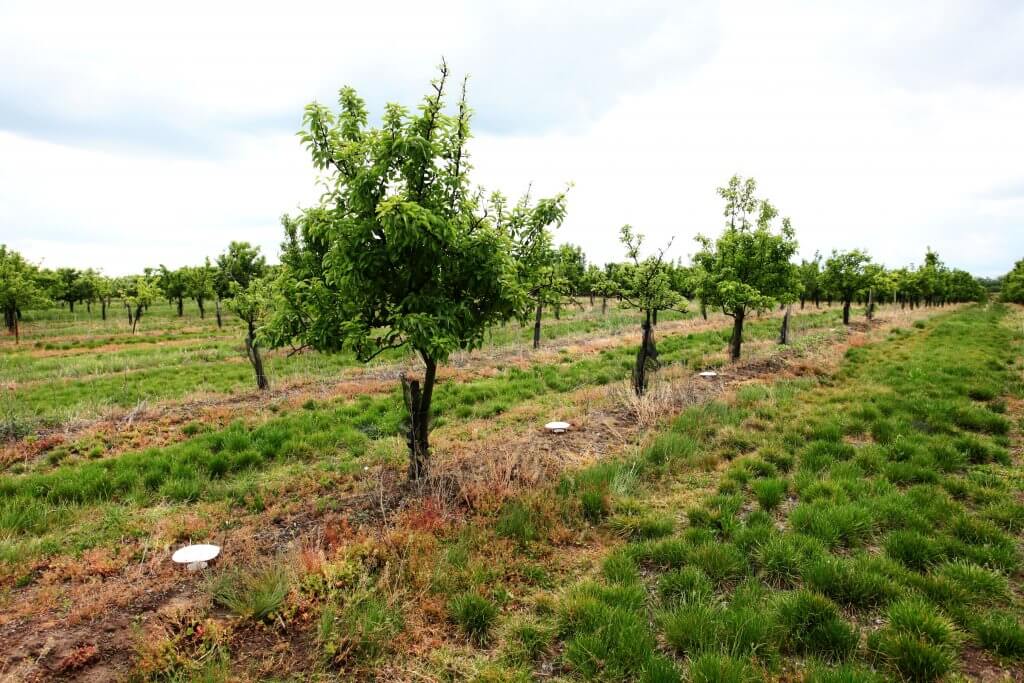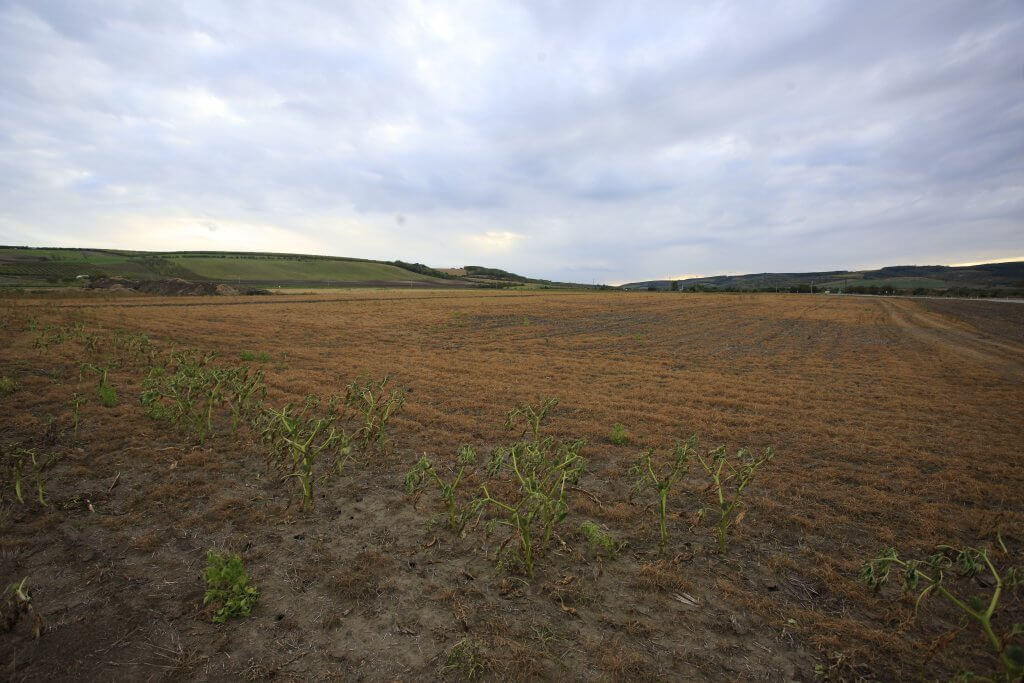A two-year study focused on the spread of pesticides in the food webs of various types of agricultural crops grown in South Moravia and Central Bohemia was conducted by a research team led by Radek Michalko from the Department of Forest Ecology and Ondřej Košulič from the Department of Forest Conservation and Wildlife Management, FFWT MENDELU, in collaboration with the Research Institute of Organic Syntheses and the RECETOX research centre at Masaryk University. Thanks to close cooperation with entities farming in these regions, the authors of the study were able to compare substances they discovered in analysed groups — soil, plants, rodents and spiders — with substances that had been applied in the affected areas over the last four years. The results showed that a considerable amount of pesticides is concentrated and spread in agricultural landscapes, some of which may have a significant impact on biodiversity and are also notably risky for humans. However, many of these substances were not applied by the farmers themselves.
The researchers explain the discovery of a diverse range of substances that farmers have not applied on their lands as being due to transfer from the surrounding landscape and subsequent accumulation in broader food webs. “When comparing different types of pesticides, we have found that the concentrations of insecticides intended to suppress insect pests and fungicides used against fungal pathogens generally increase with trophic level. This trend suggests that these substances accumulate across food chains, which is a manifestation of bioaccumulation,” described Radek Michalko the possible “movement” of harmful substances in food chains.
Scientists find it alarming to discover pesticide substances that have never been approved for use in agriculture and forestry or have been classified as banned substances in the European Union for several years: “The occurrence of these substances can be explained by their ability to persist in the environment for a long time, but we cannot rule out the possibility of illegal application and the use of counterfeit agrochemicals. However, this leads us into the realm of speculation,” suggested Ondřej Košulič possible explanations for the presence of unapproved pesticide substances.
Experts have pointed out, for example, the discovery of the highly dangerous carbofuran and its metabolites, which are highly toxic even to vertebrates and were regularly found in rodents and spiders on most cultivated perennial and annual crops during the two consecutive years when sample collection took place.
“In the Czech Republic, deaths of birds of prey caused by carbofurans occur every year, often due to direct ingestion of these substances through poisoned baits,” Košulič reminded.
Scientists have also detected residues of the highly toxic insecticide methoxychlor, which has been banned in Europe since 2002. “This substance is known for its bioaccumulation and persistence in ecosystems with significantly negative effects on non-target organisms, such as beneficial insects and various groups of vertebrates. The fungicide pyramethostrobin, which has never been registered for the European plant protection market, was also detected at very high levels. This finding also suggests that these substances may be illegally imported and sold from countries where they are commonly used as strobilurin fungicides to combat fungal diseases,” concluded Michalko, listing the dangerous substances found.
“We believe that it is essential to focus on the overall reduction of risky substances that can negatively affect the environment and non-target species through their persistence, transport, and bioaccumulation in food webs in the agro-forestry landscape of the Czech Republic, with regard to sustainable management and human health,” summarized Košulič.


The study was conducted as part of a joint project with the Research Institute of Organic Syntheses: “The Impact of Plant Protection Products on Non-Target Animal Species and Regulation of the Use of Risky Products in Agriculture,” and was financially supported by the Technology Agency of the Czech Republic (BETA2 program). The project is now followed by research collaboration with Professor Jakub Hofman from the RECETOX research centre at the Faculty of Science, Masaryk University in Brno.
The results of the study were published in the prestigious journal Agronomy for Sustainable Development.
Contacts for further information: Mgr. Radek Michalko, Ph.D., Department of Forest Ecology, FFWT MENDELU, +420 545 134 038, radek.michalko@mendelu.cz; Ing. Ondřej Košulič, Ph.D., Department of Forest Conservation and Wildlife Management, LDF MENDELU, +420 728 076 516, ondrej.kosulic@mendelu.cz
More news
-
Mendel University in Brno is the main coordinator of an international project focused on the protection and conservation of narrow-leaved ash (Fraxinus angustifolia), a key tree species in the floodplain forests of Central and Southern Europe.…29. 12. 2025
-
MENDELU coordinates activities for biodiversity conservation and sustainable…
The Faculty of AgriSciences and the Faculty of Forestry and Wood Technology at MENDELU are coordinating an international project in the Amazon that contributes to biodiversity conservation, sustainable management, and improving quality of life.…16. 12. 2025 -
CZELO celebrates 20 years of supporting Czech science and education in Europe
For two decades, the Czech Liaison Office for Education and Research in Brussels (CZELO) has been supporting Czech institutions, researchers, and students in engaging with European programmes in education, science, and innovation. At the…9. 10. 2025 -
Scientific expedition in Mongolia: new butterfly discoveries and warning signs…
Experts from Mendel University, in collaboration with colleagues from other scientific institutions, conducted biodiversity mapping during a three-week summer stay in Mongolia, focusing on the southwestern part of the country, the Gobi Altai region…28. 8. 2025 -
Coffee cultivation has a poor future due to climate change, agroforestry system…
Globally, coffee provides a livelihood for 125 million people. But forecasting models show that its cultivation has a poor future due to climate change. Sites suitable for growing Coffea arabica are predicted to decline dramatically. In that case,…4. 8. 2025 -
A new publication on biodiversity of the floodplain landscape in the…
Ecological Changes and Biodiversity of the Floodplain Landscape in the Morava–Dyje Confluence Area is the title of a book that will be published in the second half of 2025. It is the result of the work of a broad spectrum of experts specializing in…28. 7. 2025 -
EuAsiaN-ROOT Project Unveils Collaborative Research on Tree-Root-Mycorrhizal…
The Horizon Europe project, Eurasian Network for Collaborative Research on Tree-Root-Mycorrhizal-Pathogen Interactions in Forest Soils (EuAsiaN-ROOT), coordinated by the Faculty of Forestry and Wood Technology, aims to provide a deeper…24. 6. 2025 -
Five Female Wolves Fitted with GPS Collars in the Beskydy and Javorníky…
Researchers from the Faculty of Forestry and Wood Technology at Mendel University in Brno have successfully captured and fitted GPS telemetry collars on five female wolves in the Beskydy and Javorníky Mountains over the past two years. These…28. 5. 2025 -
FFWT launches unique data collection on forest ecosystem functioning in MENDELU…
The Department of Forest Ecology at the Faculty of Forestry and Wood Technology of Mendel University in Brno (FFWT MENDELU), in cooperation with the Masaryk Forest Training Enterprise at Křtiny (ŠLP Křtiny), has launched monitoring of selected…23. 5. 2025 -
Professor Vladimír Tesař on the 30th anniversary of Pro Silva Bohemica: focus…
The Faculty of Forestry and Wood Technology and other stakeholders commemorated the thirtieth anniversary of Pro Silva Bohemica, an association of foresters dedicated to promoting close-to-nature forest management. Professor Emeritus Vladimír Tesař…9. 5. 2025